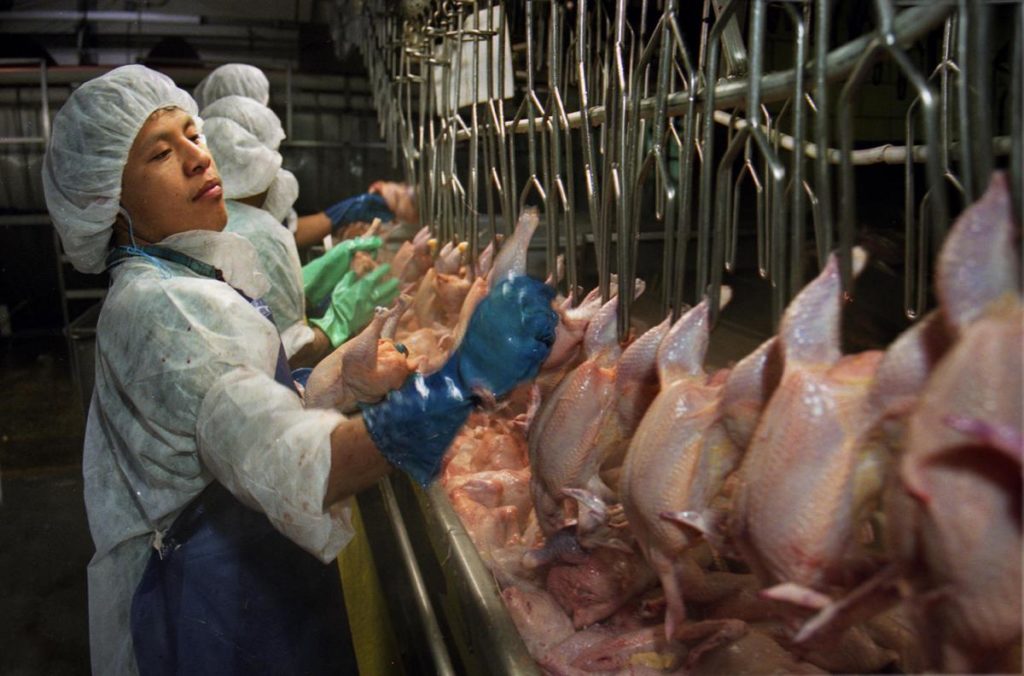OSHA’s Failures

The only time the Occupational Safety and Health Administration has even come close to living up to its potential was when Eula Bingham led the agency in the Carter years. Once Reagan got to town, he decimated the agency and it’s never recovered, a victim of low funding and corporate capture. It’s hasn’t been much better in the Clinton and Obama years than in the Bush and Trump years. The last time I taught labor history, which in Rhode Island means you get an interesting variety of people with some union familiarity, ranging from young radicals to blue collar guys to a lot of students with parents in the teachers unions and the like, we had a discussion about OSHA. A number of students had some familiarity with it and basically said it was a joke in implementation. It didn’t really do anything useful and, at least in their experience, was more concerned with ticky-tack violations than actually making workplaces safe.
I use this as a preface to this important reporting at the Prospect by Prem Thakker on OSHA’s terrible failures to protect migrant food processing workers, particularly in North Carolina.
Since the World Health Organization officially declared COVID-19 a pandemic just over a year ago, there have been at least 5,182 cases and 23 deaths in North Carolina’s farms, meatpacking plants, and other food processing facilities. The real numbers are likely higher. Migrant workers are often missed if they don’t live in migrant worker housing. And the state’s Department of Health and Human Services counts cases among migrant farmworkers as “outbreaks” only when the setting includes more than ten individuals. According to Lariza Garzon of the Episcopal Farmworker Ministry, of 1,877 migrant labor camps in the state, 1,011 are certified for fewer than ten occupants, suggesting a higher likely level of COVID within migrant farmworker settings.
The COVID crisis sheds some light on deeper patterns of ongoing neglect. In a normal year, North Carolina farms and food processing plants display a range of abuses: workers forced to wear diapers in lieu of bathroom breaks; lacerations and development of syndromes like carpal tunnel from blistering, repetitive motions; prison-commissioned workers suffering chemical burns and being treated with diaper rash cream. Some workplaces have simply lagged in adequately cleaning and enforcing safety standards, while refusing to stop or slow the endless march of production. This year, the maltreatment was only heightened. Workers are not only at risk of contracting the virus. They fear retaliation from reporting cases. Often employers neglect to inform them when co-workers test positive.
In principle, these workers are supposed to be protected by the Occupational Safety and Health Administration (OSHA). The organization sets and enforces standards, and provides training, education, and assistance to employers and employees. But the agency has been weakened for years, even before the pandemic, and was further eroded under Trump’s deregulatory regime.
Staffing numbers are at a 20-year low; the latest employment numbers from September 2020 showed 1,866 people working at OSHA—down by 400 from the peak, as the size of the U.S. workforce continues to grow. This includes sharp declines in compliance and industrial hygiene inspectors. An April 2020 report from the National Employment Law Project revealed that as of January 1, 2020, only 862 people were employed as direct inspectors—the lowest number since 1975. A report from the Office of Inspector General found that in 2020, OSHA complaints increased by 15 percent, while inspections decreased by 50 percent, as compared to the same period of time in 2019.
North Carolina is one of 22 states that operates on its own state OSHA plan. In principle, that is still required under federal law to be as “effective in providing safe and healthful employment” as federal OSHA guidelines. But North Carolina is one of a few states whose labor commissioner is directly elected rather than appointed by the governor. Democratic Gov. Roy Cooper has run into a stone wall in trying to enact an executive order setting higher safety standards during the pandemic, especially for workers in farms, meatpacking plants, and other food processing facilities. And it’s not clear how hard he tried. The governor sent an order draft to the North Carolina Department of Labor last August 28. But the agency—headed by an elected secretary with long-standing ties to the food processing industry—balked, claiming it represented overregulation of industries that “have shown a willingness to voluntarily comply with CDC guidance to protect their workers.”
One thing that the Biden administration needs to do is fix OSHA. Unfortunately, it’s never really that high on anyone’s priority list. But it’s one thing Biden can take on as part of his labor agenda without needing all that much from Congress. You don’t need an independent bill for this. What you need as a president first is to make it central to your agenda.


